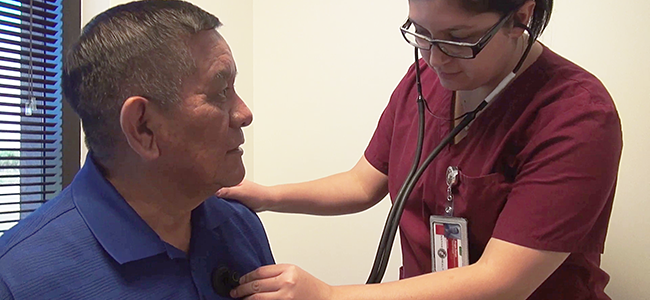National and Regional Resources
Guidance for national and regional resources that are available to support LTSS programs in different ways.

The following resources may be available to support your LTSS program in different ways. National and regional resources that support LTSS include federal agencies, national organizations, tribal epidemiology centers, and other resources for people with disabilities. These groups may provide LTSS tools, research databases, funding, and/or training and technical assistance.

Federal LTSS Partnership Agencies
CMS, IHS, and ACL are the federal agencies that support the LTSS TA Center and that are working together to help tribes and communities in Indian Country build and expand their LTSS systems.
- Centers for Medicare and Medicaid Services
- Program of All-Inclusive Care for the Elderly (PACE)
- Indian Health Service
- Administration for Community Living
National Resources
These resources cover many issues related to LTSS, ranging from professional development to assistance with specific aspects of LTSS.
- General Resources
- Carepage.com Service Directory
- Center to Advance Palliative Care
- Home and Community Based Services Clearinghouse
- Leading Age (offers education, advocacy, and research related to aging)
- National Association of Area Associations on Aging
- National Adult Day Services Association
- National Long-Term Care Ombudsman Resource Center
- Resources for Native American Communities
- Resources for Veterans Services
- Housing and Facilities Resources
Tribal Epidemiology Centers
Epidemiology centers study public health issues among specific populations. There are 12 tribal epidemiology centers funded by IHS. Some centers offer training and technical assistance or other services to help AI/AN communities address health issues.
- Alaska Native Epidemiology Center, serving Alaska
- Albuquerque Area Southwest Tribal Epidemiology Center, serving New Mexico, Colorado, and Texas
- California Tribal Epidemiology Center, serving California
- Great Lakes Inter-Tribal Epidemiology Center, serving Michigan, Minnesota, and Wisconsin
- Great Plains Tribal Epidemiology Center, serving North Dakota, South Dakota, Nebraska, and Iowa
- Inter Tribal Council of Arizona Tribal Epidemiology Center, serving Arizona, Nevada, and Utah
- Navajo Epidemiology Center, serving the Navajo Nation in Arizona, Colorado, New Mexico, and Utah
- Northwest Tribal Epidemiology Center, serving Idaho, Oregon, and Washington
- Oklahoma Area Tribal Epidemiology Center, serving Kansas, Oklahoma, Texas
- Rocky Mountain Tribal Leaders Council Tribal, Epidemiology Center, serving Montana and Wyoming
- United South and Eastern Tribes (USET) Epidemiology Center, serving Alabama, Connecticut, Florida, Louisiana, Maine, Massachusetts, Mississippi, New York, North Carolina, Rhode Island, South Carolina, Tennessee, Texas, and Virginia
- Urban Indian Health Institute, serving urban Indian communities nationwide
Disabilities Resources
These resources cover a variety of issues relating to American Indians and Alaska Natives with disabilities.
- American Indian Disability Technical Assistance Center (AIDTAC)
- Christopher and Dana Reeve Foundation Paralysis Resource Center
- CDC: Tribal Road Safety
- Consortia of Administrators for Native American Rehabilitation (CANAR)
- National Council on Disability Toolkit: Understanding Disabilities in American Indian and Alaska Native Communities
- Native American Disability Law Center
- Accredited Online Schools & Colleges
Issued by: Centers for Medicare & Medicaid Services (CMS)
Issue Date: April 17, 2019
HHS is committed to making its websites and documents accessible to the widest possible audience, including individuals with disabilities. We are in the process of retroactively making some documents accessible. If you need assistance accessing an accessible version of this document, please reach out to the guidance@hhs.gov.
DISCLAIMER: The contents of this database lack the force and effect of law, except as authorized by law (including Medicare Advantage Rate Announcements and Advance Notices) or as specifically incorporated into a contract. The Department may not cite, use, or rely on any guidance that is not posted on the guidance repository, except to establish historical facts.
